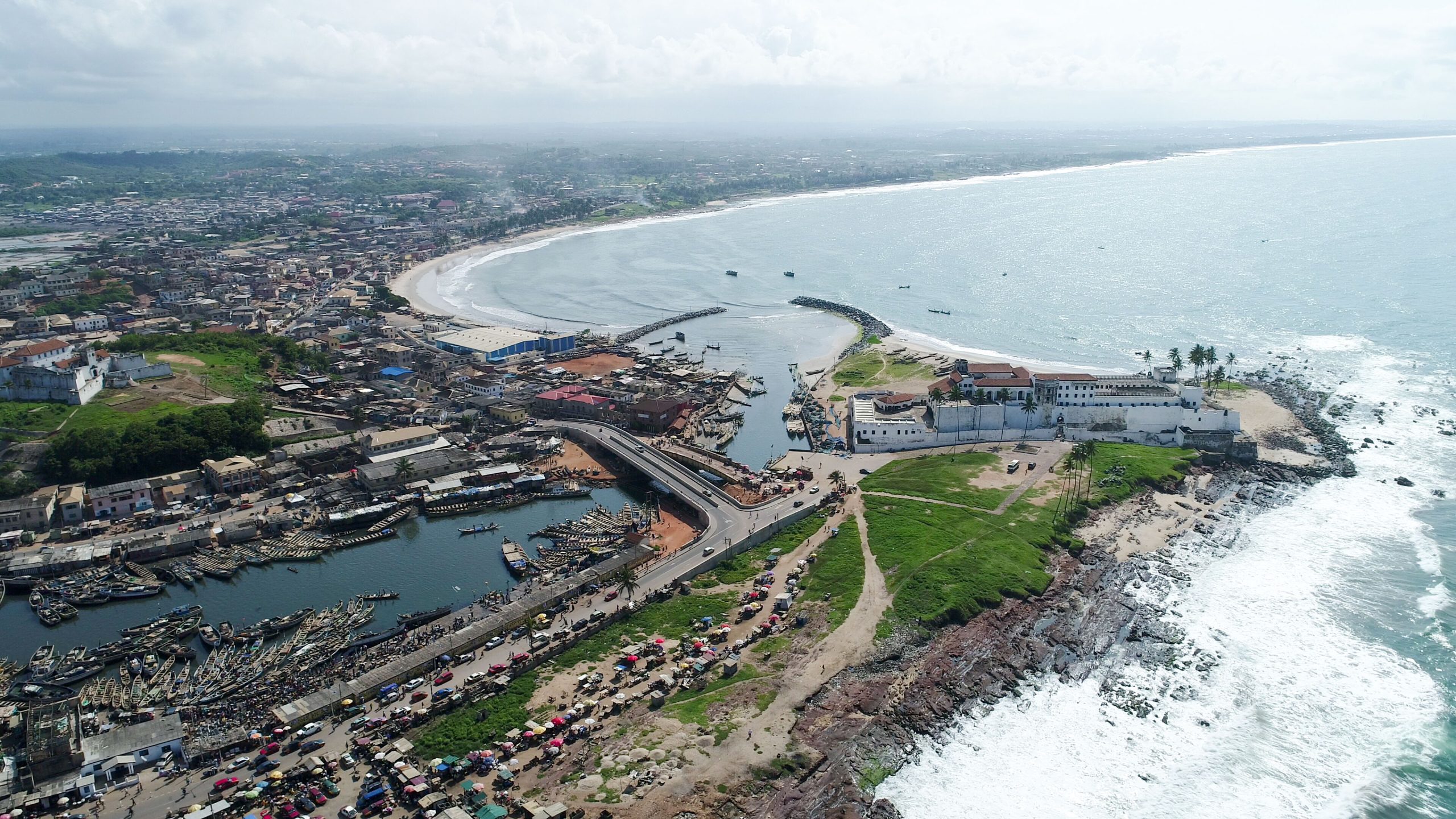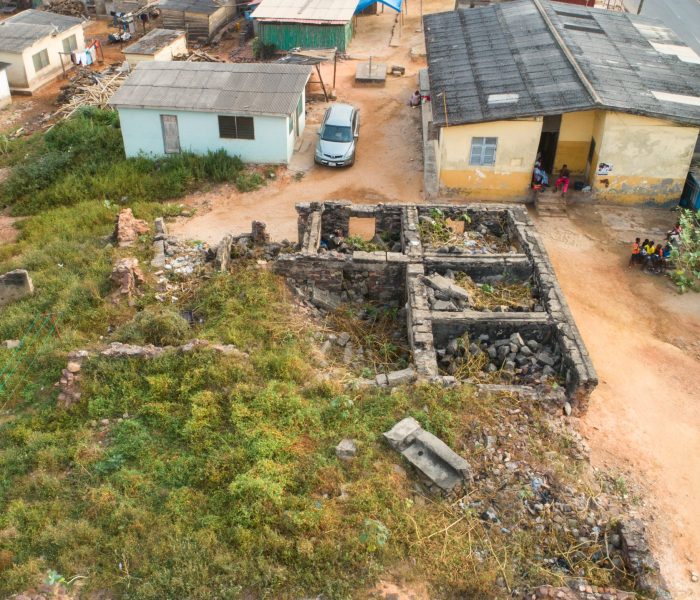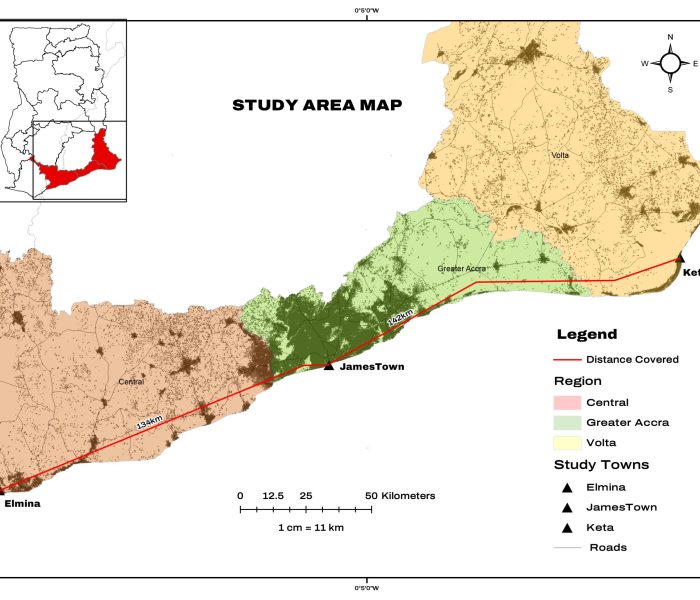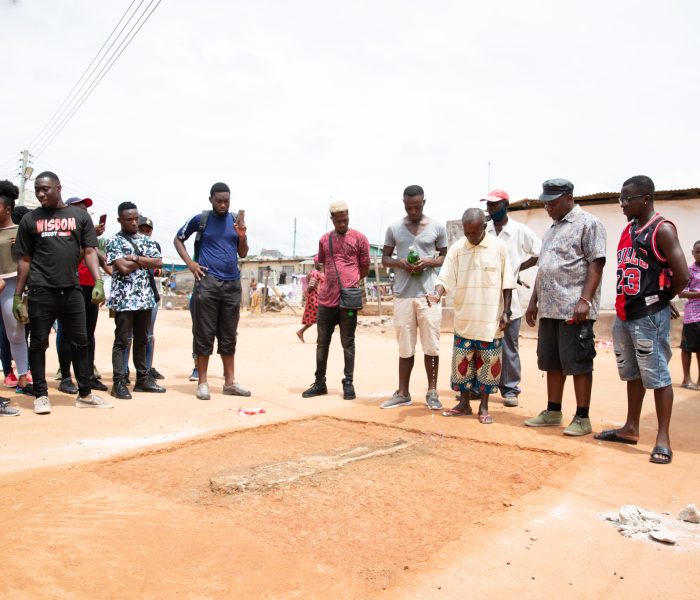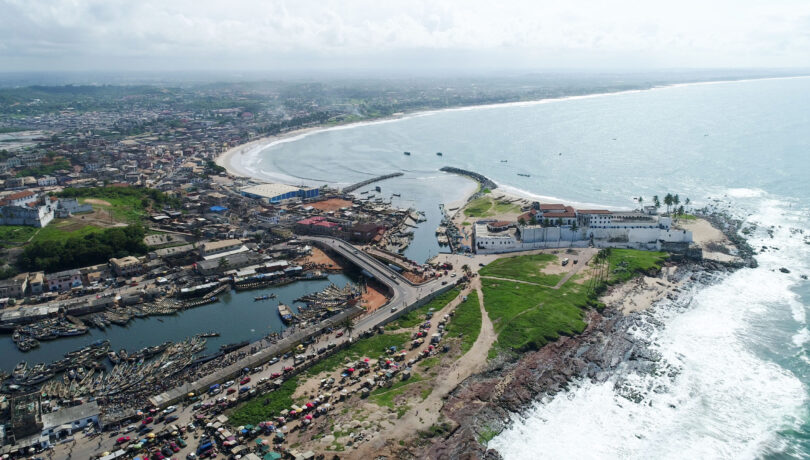
LOCATION
Accra, Ghana
OUR TEAM
Kodzo Gavua, Director of the A.G. Leventis Digital Resource Centre (University of Ghana)
David Adjartey, Leventis Digital Resource Centre, University of Ghana
Jacob Nii Marley, Leventis Digital Resource Centre, University of Ghana
Ivan Nyamasekpor, Leventis Digital Resource Centre, University of Ghana
Ghana
SYNOPSIS and POSITION
The Imagining Futures’ Ghana Lab is hosted by the A.G. Leventis Digital Resource Centre (LDRC) at the Department of Archaeology and Heritage Studies, University of Ghana. The Lab has investigated the archival records and archiving practices of the people of three prominent coastal settlements of Ghana, Elmina, Jamestown, and Keta. It also studied how the people apply information they have archived about their past to engage with their social and physical environment to live in relative peace and amity. These settlements evolved and became cosmopolitan as a result of trading, religious and other activities between various African and European agencies along the Gulf Coast of West Africa. They are currently inhabited by the descendants of people who established the settlements and immigrants. The Ghanaian coast has been the earliest site of direct contact and interaction between Africans and Europeans in sub- Saharan Africa. Beginning with Portuguese merchants, priests, and soldiers among others who in 1471 began operating on the coast, a succession of Danish, Dutch, German, French and British establishments and their African counterparts subjugated the local people amid strife engendered by physical and other forms of conflict, including clashes of values, interests, and ways of life.
OBJECTIVES AND METHODS
The Ghana Lab’s goal is to seek from orthodox and alternative sources data that will inform on what the people of Elmina, Jamestown and Keta remember about their past and memorialize, how memories of the past are kept, and how the people engage and interface with these memories to navigate their life circumstances and maintain relatively cohesive and peaceful social units. Our investigations focused on Elmina (https://www.threads.net/@the_ldrc), a town where Portuguese agents first settled and in 1482 constructed a trading post they named São Jorge da Mina, which is the oldest European edifice in sub-Saharan Africa today. Jamestown and Keta were also studied for comparative information. We have sought to explore, define and account for variability in the media and processes of archiving and in how the past is used within and between the three settlements. The Lab’s research team applied a combination of archaeological, ethnographic, ethno-historical, other anthropological and digital media research strategies to elicit data from multiple sources on archaeological and historic sites, structures, objects, local performances, and the landscape as archives that express and reflect the people’s past and present.
Images: Relics of 19th Century Mount Pleasant Residence; Map of Elmina, Jamestown, and Keta; Elmina Burial Excavation
WORKSHOPS AND EVENTS
- Re-conceptualizing and Presenting African Heritages: Beyond Popular Narratives, 11th– 12th August, 2021. The Ghana Lab organized this conference in collaboration with an Andrew W. Mellon-sponsored project, Remaking Societies, Remaking Persons: A Supranational Forum for Rethinking Heritage, Museums and Memory Work (RSRP). The participants deliberated Africa’s (hi)stories and heritages, and shared knowledge, experiences, and other information to enhance the processes of reconceptualising, reconfiguring, archiving, and representing (hi)stories and heritages in ways that will render them relevant.
- Jamestown – Yesterday, Today and Tomorrow: An exhibition on Ga-Mashie Boxing Heritage. The exhibition at the Museum of Science and Technology in Accra, from 27th Jan – 4th Feb, 2022 explored the place of boxing in Ga-Mashie culture and the impact boxing has on the Ga-Mashie community. It also presented Ghanaian history from an alternative perspective – one that unites rather than separates people. For more information, including seeing young boxers in action, follow this link https://youtu.be/jT_Ig-oErJE.
- Words into Action Manifesto for Imagining Futures: Roles of Institutions in Egalitarian Archival Practices and Methods of Creating Digital Repositories. The 9th – 13th January, 2023 gathering in Accra the first of three gathering the Imagining Futures Team organized. It brought together international and local stakeholders to share multiple perspectives that laid the grounds for an Imagining Futures’ digital repository which the Ghana Lab will host. For more insights into the gathering, follow the link here: https://youtu.be/1mLKJH6nFU
- Digital Repository Training for the Ghana Lab team. IF organized the maiden training workshop at University of Exeter from 4th-8th Dec. 2023 and has followed up with weekly virtual training sessions for the team in preparation for the establishment of the IF ‘Unarchiving’ Repository in May, 2024.
ACTIVITIES
- Preliminary site visits to Elmina, Jamestown, and Keta to identify, engage with and seek the consent of local research partners, including government administrators and local authorities, opinion leaders, heads of families and schools, religious leaders, museum officials, media personnel, fishermen and fishmongers, and the members of community associations.
- Organization of annual inter-semester archaeology and ethnography field schools at Elmina from 2021-2024 with final-year undergraduate and first-year graduate students of University of Ghana as participants. The participants were trained and supervised by the Ghana Lab team to gather archaeological, ethnographic and ethno-historical data relating to what the people identify and keep as their past.
- Interactions with pupils, students and teachers of Primary and High Schools at Elmina, Jamestown and Keta for their perspectives on the past and present of their respective settlements.
- Production and distribution of a documentary and photobook on Ga Mashie boxing heritage to schools, boxing gymnasia and community leaders in Jamestown.
- Community engagements in Elmina, Jamestown and Keta to discuss and validate the preliminary results of the Ghana Lab’s investigations.
PRELIMINARY FINDINGS AND OUTPUT
Overall, Ghana Lab has been able to gather formally and informally archived information that humanities research often glosses over and to expose archiving processes that reflect multiple co- existing experiences and memorialisation of value and relevance. Notwithstanding variations that exist, trends that are common to the three settlements are outlined below:
- Songs, performances, communal celebrations, monuments, names, photographs, stories, proverbs and the landscape are key media through which people of the settlements studied conserve and transmit information about the past they choose to keep and use to guide their present and to inform their futures.
- The archived past is an instrument for managing trauma, fostering social cohesion and peaceful relations and for maintaining the fabric of society.
- Various communities bonded by kinship, profession, spirituality, social status, and gender deliberately choose aspects of the past and present they wish to remember and conserve or disremember based on changing life circumstances and interests.
- Heterogeneity of the settlements make nonsense of tribalism and ethnicity.
AFFILIATED GROUPS AND ORGANISATIONS
- Ghana’s Public Records and Archives Administration Department (PRAAD)
- Ghana Museums and Monuments Board (GMMB)
- Ghana Heritage Committee (Ghana Commission for UNESCO)
- Ghana Education Service
- Jamestown Sub-Metropolitan Assembly
- Jamestown Gbekebii (www.jamestowngbekebiifoundation.com)
- Voice of waste (www.voiceofwaste.com)
- Firebeads Media (benpaali.org)
- KEEA District Assembly
- Edina Konkobesia (Fishmongers Association, Elmina)
- Edina Traditional Council
- Edina Catholic Diocese
- Keta Municipal Assembly
- Keta Evangelical Presbyterian Mission
A Ga-Mashie Boxing Heritage Photobook has been created for the project which you can view and download HERE, and a video is available to watch below:

